Women Gender

How should women behave in a mixed-gender professional environment ?
Navigating gender dynamics in a mixed-gender professional environment requires women to exhibit confidence, professionalism, and foster positive relationships with colleagues. Key guidelines include speaking up, taking credit for achievements, dressing appropriately, conducting oneself with integrity, collaborating with colleagues, networking, challenging stereotypes, seeking feedback, supporting diversity, mentoring others, staying authentic, and pursuing personal growth. By following these principles, women can thrive professionally and contribute positively to the workplace culture.
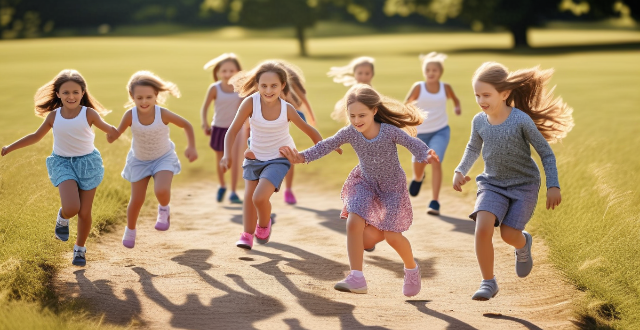
How can we use sports to promote gender equality and empower women and girls ?
Promoting gender equality and empowering women and girls through sports involves increasing visibility, ensuring fair representation, improving access and inclusivity, providing education and training, implementing policy and legislation, promoting health and wellness, encouraging economic empowerment, engaging the community, and fostering cultural change. These efforts aim to break down barriers, challenge stereotypes, and create opportunities for women and girls to thrive both on and off the field.

How has sports contributed to gender equality ?
Sports have contributed to gender equality by increasing participation, equal pay, media coverage, and female leadership in sports administration.

What are some successful examples of integrating gender equality into climate change initiatives ?
Integrating gender equality into climate change initiatives is crucial for achieving sustainable development and ensuring that everyone benefits from environmental protection measures. Successful examples include promoting women's participation in decision-making, incorporating gender perspectives into policies and programs, supporting women-led climate action initiatives, and addressing gender-based violence in climate displacement. These efforts not only promote social justice but also enhance the effectiveness of climate actions by harnessing the strengths and contributions of all individuals, regardless of their gender.
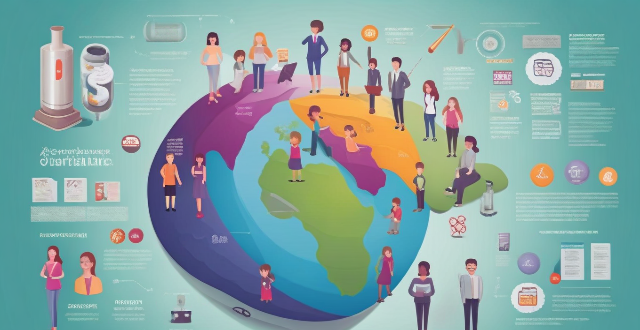
How have women's empowerment initiatives affected gender equality globally ?
The essay discusses the impact of women's empowerment initiatives on gender equality globally. The initiatives have increased access to education and training for women, leading to their active participation in public life. They have also provided economic empowerment through financial resources, microfinance loans, and entrepreneurship training programs, resulting in greater gender equality in the workplace. Health and reproductive rights have been improved through awareness campaigns and advocacy for policies supporting family planning and contraception. Finally, these initiatives have encouraged women's political participation, creating a more diverse and representative government. Overall, women's empowerment initiatives have played a crucial role in promoting gender equality worldwide.

How can we promote gender equality in climate policy making ?
Promoting gender equality in climate policy making is crucial for ensuring inclusive policies that address the needs of all genders and harness the potential of everyone in combating climate change. Key strategies include ensuring equal representation of men and women at all levels of decision-making, addressing gender-specific impacts of climate change, promoting education and training, collaborating with women's organizations, and creating safe spaces for open expression. By implementing these measures, we can move towards more effective and equitable solutions to tackle climate change.

What is the relationship between climate change and gender-based violence ?
The text discusses the correlation between climate change and gender-based violence, emphasizing that they intersect in several ways. It mentions how climate change exacerbates social inequalities, making women more vulnerable to gender-based violence, such as sexual assault and harassment during displacement and overcrowding caused by natural disasters. It also points out the economic impact on women who manage household resources during scarcity, potentially leading to domestic violence due to increased stress and tension. The text further highlights how climate change can reinforce harmful gender norms, affecting men's ability to provide for their families and leading to frustration and aggression towards women. It also notes the impact of climate change on women's access to justice, as legal institutions may be disrupted or overwhelmed by climate-related disasters, making it difficult for women to report incidents of gender-based violence or seek legal recourse. Lastly, it mentions the negative impact of climate change on mental health, which can increase the risk of gender-based violence. The text concludes by emphasizing the need for a comprehensive approach to address both problems, taking into account their intersection and differential impact on various populations, to create a more equitable and just world.
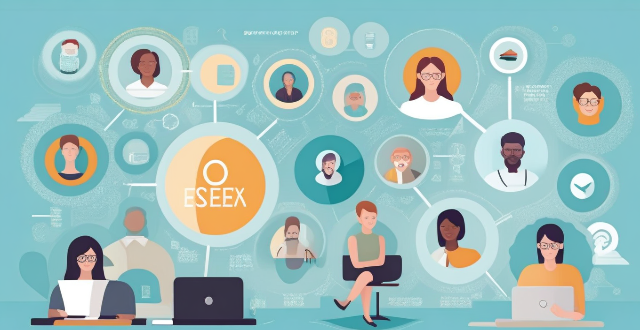
How do female entrepreneurship programs contribute to economic growth and gender equality ?
Female entrepreneurship programs contribute to economic growth and gender equality by providing women with resources, training, and support. They create job opportunities, diversify the economy, and generate tax revenue. These programs also address challenges faced by women in business, such as access to capital, networking, and breaking down stereotypes. Overall, they promote a more diverse and innovative economy while fostering equal opportunities for all individuals regardless of gender.

How can we address the intersectionality of climate change and gender inequality ?
Addressing the intersectionality of climate change and gender inequality requires a comprehensive approach that considers both environmental and social dimensions. Key points include recognizing the intersectionality, including women in decision-making processes, promoting gender-sensitive climate policies, supporting women's access to education and empowerment, ensuring access to sustainable energy and resources, addressing gender-based violence, and fostering collaboration and partnerships. By taking these steps, we can work towards a more equitable and sustainable future for all.

What are the gender-specific impacts of climate change on agriculture and food security ?
Climate change has gender-specific impacts on agriculture and food security. Women often bear the brunt of these impacts due to their roles in household food production and preparation, income generation through small-scale farming, and community leadership in natural resource management. Men, on the other hand, may experience changes in employment patterns, loss of income, increased stress, and social conflicts over resources. Both women and men face challenges such as reduced crop yields, increased workload, loss of traditional knowledge, health risks, and reduced dietary diversity. Addressing these gender-specific impacts requires a comprehensive approach that promotes gender equality and empowers both women and men to adapt to climate change.

How does climate change exacerbate gender inequality in access to resources and decision-making ?
Climate change exacerbates gender inequality by disproportionately affecting women and girls in access to resources and decision-making. Women often have limited access to resources such as water, food, and land due to cultural norms, lack of education, and poverty. They also have limited participation in decision-making processes due to cultural norms and lack of education. To address these issues, it is important to prioritize gender equality in climate change adaptation and mitigation strategies by ensuring that women's voices and experiences are taken into account when making decisions.

How can women protect themselves from gender-based discrimination and harassment ?
Gender-based discrimination and harassment are pervasive issues that women face in various settings, including the workplace, education, and public spaces. To protect themselves, women can take several proactive steps to ensure their safety and well-being, including educating themselves about their rights and forms of harassment, creating a supportive network, taking preventive measures, reporting incidents promptly, seeking legal advice and counseling services when needed, and advocating for change by raising awareness and participating in policy making. By employing these strategies, women can better protect themselves from gender-based discrimination and harassment while also contributing to a broader cultural shift towards equality and respect.

How can companies promote gender equality in the workplace ?
In full: Companies can promote gender equality in the workplace by implementing gender-neutral hiring practices, providing equal opportunities for advancement, ensuring equitable pay and benefits, fostering an inclusive culture, addressing harassment and discrimination, supporting women in non-traditional roles, and celebrating achievements and diversity.

What role do women play in addressing climate change ?
Women's Role in Addressing Climate Change: Women play a crucial role in addressing climate change through leadership and advocacy, innovative solutions, community engagement and education, and promoting gender equality and climate justice. They have led international negotiations, founded organizations dedicated to climate action, developed new technologies and business models, engaged in activities such as tree planting and waste reduction, and advocated for gender equality in decision-making processes. Women's contributions are essential to achieving a sustainable future for all.

What is the role of sports sponsorship in promoting gender equality in sports ?
Sports sponsorship is crucial for promoting gender equality in sports. It provides financial support to female athletes, increases visibility of women's sports, creates role models, and promotes equity by ensuring equal funding for both men's and women's sports. This helps break down barriers and create opportunities for female athletes to compete at the highest levels.

How can we empower women to lead the fight against climate change ?
Empowering women to lead the fight against climate change involves recognizing their unique perspectives, capabilities, and contributions to environmental conservation. This multifaceted approach includes: 1. **Recognizing Gender-Specific Impacts of Climate Change**: - Highlight the disproportionate impact on women through awareness and education campaigns. - Promote gender-sensitive climate policies that address specific needs and challenges faced by women. - Ensure gender-disaggregated data collection for a better understanding of climate impacts. - Support gender analysis in climate research to explore its effects on communities. 2. **Encouraging Women's Participation in Decision-Making**: - Increase representation of women who prioritize climate action in political involvement. - Foster women-led climate initiatives that are designed, implemented, and led by women. - Provide training programs that equip women with necessary skills for leadership roles. - Create networking opportunities for women to connect, share knowledge, and collaborate. 3. **Investing in Women-Centric Infrastructure and Technology**: - Train women in green technologies and renewable energy sectors for sustainable job opportunities. - Offer grants and loans to women entrepreneurs creating eco-friendly businesses. - Develop gender-responsive infrastructure projects like water systems and renewable energy setups. - Support women farmers through education on climate-resilient farming practices and access to resources. 4. **Amplifying Women's Voices in Climate Conversations**: - Ensure fair representation of women's voices in media coverage of climate issues. - Leverage digital platforms to amplify women's messages and campaigns related to climate change. - Support women-led grassroots movements focusing on local environmental issues. - Organize educational workshops in communities, led by women offering unique perspectives. By adopting these strategies, we can empower women, strengthen the fight against climate change with innovative solutions, and foster inclusive leadership.

How can women overcome gender bias in the startup world ?
Gender bias is a pervasive issue in many industries, including the startup world. Women face unique challenges when it comes to funding, networking, and building their businesses. However, there are strategies that women can employ to overcome these obstacles and thrive in the startup world. Here are some tips: 1\. Build a Strong Network: Networking is crucial for any entrepreneur, but it's especially important for women who may not have as many natural connections in the industry. Attend industry events, join professional organizations, and connect with other entrepreneurs on social media. Make sure to diversify your network by seeking out people from different backgrounds and perspectives. 2\. Develop Your Skills: Take courses or attend workshops to develop your skills in areas such as finance, marketing, and management. This will not only make you a more well-rounded entrepreneur but also demonstrate your commitment to learning and growing. 3\. Be Confident and Assertive: Women are often socialized to be polite and deferential, which can sometimes hold them back in business settings. Practice being confident and assertive in meetings and negotiations. Remember that you deserve to be taken seriously and that your ideas and opinions are valuable. 4\. Seek Out Mentors and Advisors: Find mentors or advisors who can offer guidance and support as you navigate the startup world. Look for people who have experience in your industry and who share your values and goals. 5\. Leverage Your Strengths: Women often bring unique strengths to the table, such as empathy, collaboration, and creativity. Emphasize these qualities in your pitches and marketing materials, and don't be afraid to highlight how they set you apart from your competitors. 6\. Stay Persistent: Starting a business is hard work, and there will inevitably be setbacks along the way. Stay persistent and focused on your goals, even when faced with rejection or failure. Remember that every challenge is an opportunity to learn and grow. 7\. Advocate for Yourself and Others: Speak up about issues of gender bias and inequality whenever you see them. Use your platform to advocate for change within your industry and support other women who are facing similar challenges. By working together, we can create a more equitable and inclusive startup world for all entrepreneurs.

Can you identify any international sports events that have taken significant steps towards achieving gender parity among competitors ?
The text discusses the growing emphasis on achieving gender parity in sports, highlighting significant steps taken by various international sports events towards this goal. It mentions the Olympics' strides in ensuring equal participation and medal distribution for men and women, FIFA's establishment of the Women's World Cup and increased investment in women's football, tennis Grand Slams offering equal prize money and television coverage for both genders, and the Rugby World Cup's efforts to promote women's rugby and implement gender equality policies. The text concludes that these initiatives demonstrate a commitment to creating a more equitable playing field for all athletes, regardless of gender, acknowledging that there is still work to be done.

How does climate change affect gender equality ?
The text discusses the impact of climate change on gender equality, highlighting increased vulnerabilities for women in health, economics, and social factors. It further points out how climate change exacerbates existing inequalities through gender-based violence and educational setbacks. However, it also identifies opportunities for resilience and empowerment through resilient livelihoods, enhanced participation, and improved health and safety measures. The conclusion emphasizes the importance of addressing climate change with a gender lens to achieve sustainable development and a more equitable future.

What steps can be taken to achieve gender equality in the workplace ?
To achieve gender equality in the workplace, organizations should implement diversity policies, encourage women to apply for leadership roles, address sexual harassment, offer flexible work arrangements, and foster an inclusive culture. These steps will create a fair and diverse work environment where everyone feels valued and respected regardless of their gender identity.

What policies or initiatives have been implemented to ensure equal pay and opportunities for both men and women in professional sports ?
In recent years, there has been a growing movement to ensure equal pay and opportunities for both men and women in professional sports. This has led to the implementation of various policies and initiatives aimed at achieving gender equality in sports, including gender equality laws and regulations, collective bargaining agreements (CBAs), wage transparency policies, gender quotas and targets, gender equality initiatives and programs, and improved media coverage and representation of women's sports. While progress has been made towards ensuring equal pay and opportunities for both men and women in professional sports, there is still much work to be done. By continuing to implement policies and initiatives that promote gender equality, sports organizations can create a more inclusive environment where all athletes can thrive regardless of their gender.
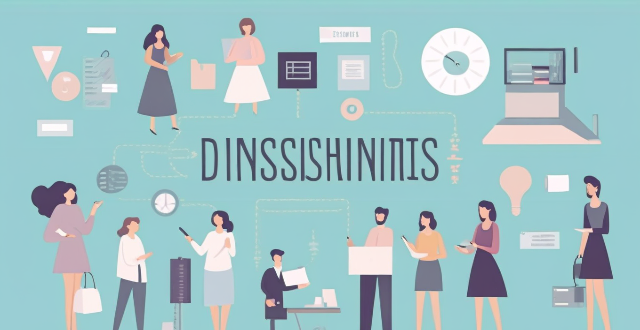
What measures have been taken to ensure equal pay for women in different industries ?
The text discusses the various measures taken to ensure equal pay for women in different industries. These include legislation, transparency and reporting, collective bargaining, education and awareness campaigns, gender bias training, promotion of women into higher-paying roles, performance evaluation reforms, and addressing occupational segregation. The conclusion states that achieving equal pay requires a multifaceted approach involving all these measures, and there is still much work to be done to ensure true gender equality in the workplace.

How does scientific literacy among women impact society ?
Scientific literacy among women has significant benefits for society, including improved health outcomes, increased economic opportunities, enhanced environmental stewardship, greater participation in policy decisions, and promotion of gender equality. However, challenges such as lack of access to quality education, gender biases in STEM fields, limited role models, and workplace discrimination must be addressed to fully realize these benefits.

How have historical events impacted the acceptance and participation of women in various sports throughout time ?
The text discusses how historical events and societal norms have influenced women's participation in sports throughout history. In ancient civilizations like Greece and Rome, women were generally excluded from athletic competitions due to cultural beliefs and expectations about their roles. During the Middle Ages, their involvement remained limited, with some exceptions for practical purposes. The Industrial Revolution brought slight progress as leisure time increased, but gender stereotypes still hindered women's participation. Pioneering figures in the late 19th and early 20th centuries began promoting women's sports, leading to the inclusion of women's events in the Olympics. After World War II, there was a push for gender equality, including in sports, resulting in increased opportunities for female athletes. Today, while women participate in a wider range of sports than ever before, challenges such as unequal treatment persist, requiring continued advocacy for gender equity in sports.

What are the gender dimensions of climate-induced displacement and migration ?
The text discusses the gender dimensions of climate-induced displacement and migration. Women and girls are often more vulnerable to health and safety risks during displacement, face challenges in accessing essential resources such as food, water, shelter, and education, and may lose social networks and support systems that are crucial for their well-being. To address these unique challenges, it is essential to incorporate gender-specific needs into humanitarian response efforts, including providing safe spaces, ensuring access to basic needs, supporting economic empowerment, and promoting gender equality.

What are some examples of successful women athletes breaking gender stereotypes in sports ?
Throughout history, women have faced numerous challenges and stereotypes in the world of sports. However, many successful female athletes have shattered these stereotypes and paved the way for future generations of female athletes. Here are some examples: 1. Serena Williams - Tennis 2. Simone Biles - Gymnastics 3. Ronda Rousey - Mixed Martial Arts (MMA) 4. Mia Hamm - Soccer 5. Katarina Johnson-Thompson - Heptathlon
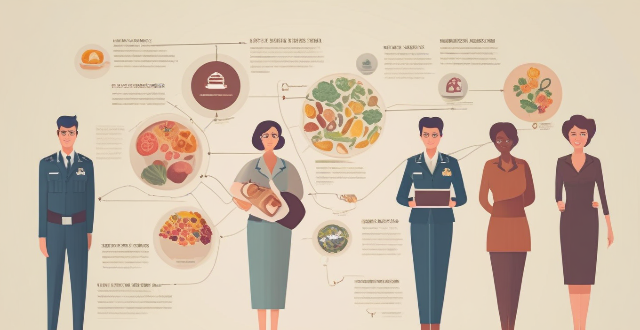
What are some examples of successful gender-responsive climate policies or initiatives ?
Gender-responsive climate policies and initiatives are crucial for ensuring that everyone can participate fully in efforts to mitigate and adapt to climate change. Successful examples include women's participation in renewable energy programs, gender-responsive disaster risk reduction programs, and gender-responsive agriculture and food security initiatives. These initiatives provide employment opportunities, reduce vulnerabilities, and improve agricultural practices while considering the needs and priorities of both women and men.
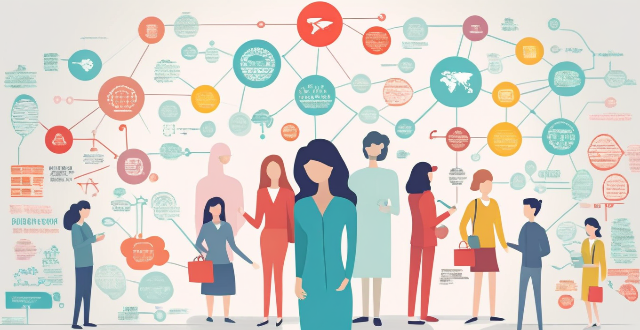
How can we ensure that climate change adaptation and mitigation strategies are gender-sensitive ?
To ensure that climate change adaptation and mitigation strategies are gender-sensitive, it is important to recognize the gendered impacts of climate change, involve women in decision-making processes, address gender inequalities in access to resources, promote gender-sensitive research and data collection, and provide gender-sensitive education and training. By taking these steps, we can ensure that climate change adaptation and mitigation strategies are designed and implemented in a way that takes into account the different needs and priorities of women and men.

What is the role of gender equality in achieving climate justice and sustainability ?
Gender equality is a key component in achieving climate justice and sustainability. It ensures equal opportunities for all individuals to participate in decision-making processes related to climate change mitigation and adaptation strategies, including access to education, healthcare, and economic resources. Gender equality recognizes the vulnerabilities of women and girls affected by climate change, promotes inclusivity, enhances resilience, drives innovation, and addresses intersectionality. Strategies for achieving gender equality in climate action include incorporating gender perspectives into policies, increasing representation, providing resources, encouraging collaboration, monitoring progress, educating stakeholders, advocating for legal protections, promoting cultural change, supporting research, and sharing best practices.

What role does sports culture play in promoting gender equality ?
Sports culture has a significant impact on promoting gender equality by providing equal opportunities for participation, challenging stereotypes, and building inclusive communities. It empowers individuals through participation, leading to increased self-confidence and a sense of accomplishment. By recognizing and celebrating diverse representations of gender, sports culture can help to break down barriers and promote greater acceptance and respect for all individuals.